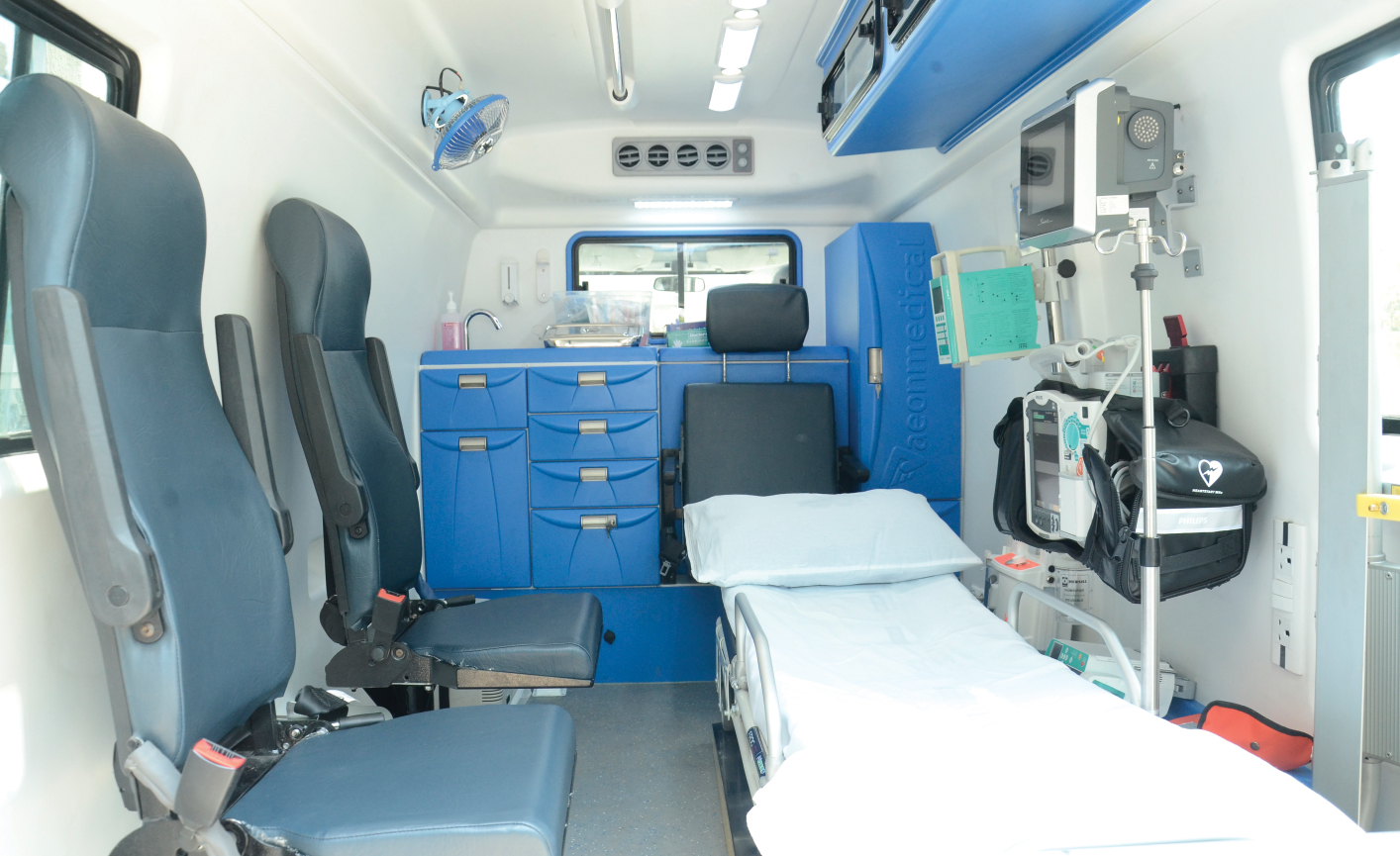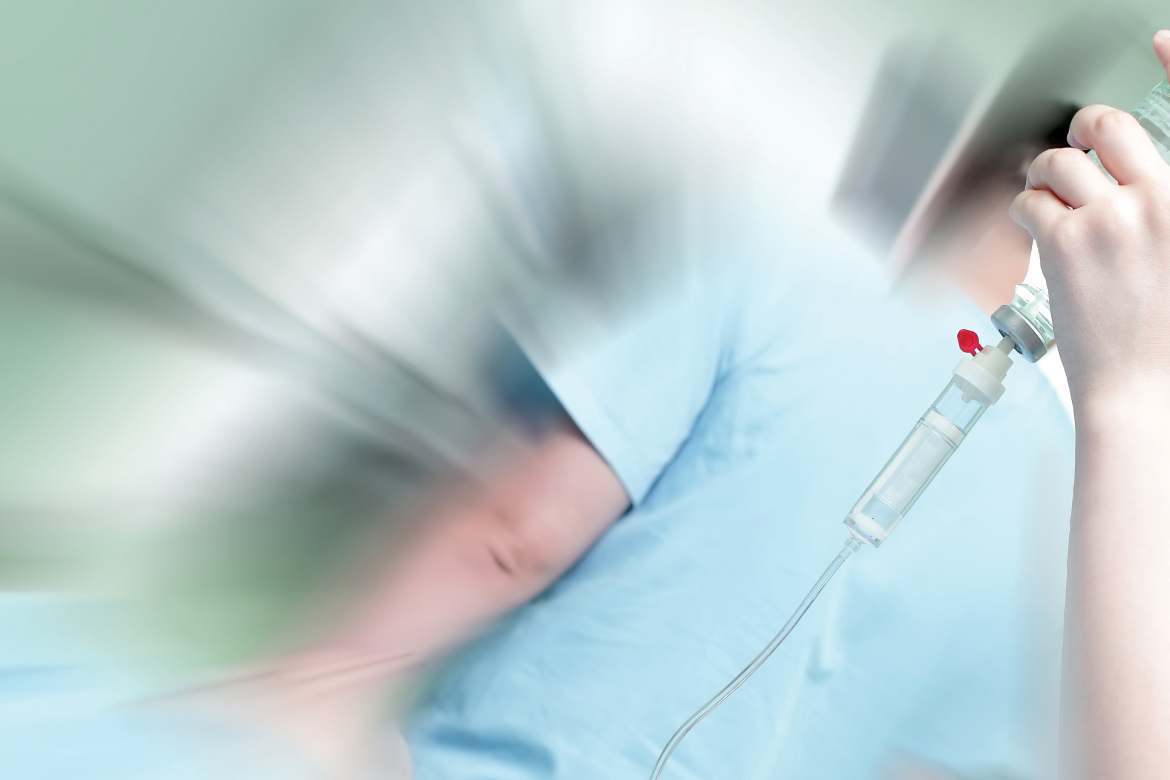Picture a scenario where you are walking down the road and suddenly you hear a screech of tyres and the sound of broken glass. You were simply going about your day as usual and suddenly you are faced with an emergency situation—a road accident.
Situations like these are why Kokilaben Dhirubhai Ambani Hospital has created an allencompassing Centre for Accident & Emergency (A&E) to ensure that there is no need for panic. You can make a single call to our emergency number and breathe a sigh of relief because the experts are here to take care of the injured.
The Centre for Accident & Emergency at Kokilaben Hospital is the biggest emergency centre in Mumbai specialising in the acute care of patients who have sudden medical needs.Due to the unplanned nature of patient’s needs, the centre provides initial treatment for a broad range of illnesses and injuries some of which may be life-threatening and require immediate attention.
Our Facilities
- 20 beds
- 10 ICU beds with monitors and ventilators
- ECG, portable digital X-ray, ultrasonography (USG), vascular Doppler, foetal heart sound monitor
- Operation theatre with advanced cautery machine
- Isolation room for patients with infectious diseases
- Resuscitation room for CPR and stabilisation of critically-ill patients
- 7 senior doctors and 30 junior doctors,35 nurses working around the clock
Our Quality of Care
- Critical patients are taken care of immediately on arrival
- All patients seen within 10 minutes
- All doctors are emergency medicine specialists
- Bedside sonography for quick diagnosis within minutes
- Ultrafast treatment of stroke and heart attack patients within the golden hour
- Minilab available for important tests,reports available in two minutes
- Digital X-ray machine with monitor displays bedside X-rays on the spot
- Written protocols for treatment of emergencies as per international standards
- Rigorous internal checks and audits for quality of care

Our standards
| CHEST PAIN | KOKILABEN HOSPITAL | GLOBAL BENCHMARK | GLOBAL TREND |
|---|---|---|---|
| Door to Doctor time | 5 min (100 per cent) |
15 min (95 per cent) |
15 per cen |
| Door to ECG time < 10 min | 99 per cent | 80 per cent | 40 per cent |
| Door to CT/ MRI Interpretation | 35 min | 45 min | 60 min (30 per cent) |
| Door to needle time < 60 min for clot-buster injection in acute ischaemic stroke | 95 per cent | 80 per cent | 40 to 70 per cent |
Our Ambulances are
- Fully-equipped with the highest-quality of medical equipment
- Manned by qualified doctors and trained nurses,who begin treatment at home within the golden hour
- Akin to mobile ICUs,treatment continues on the way to hospital
- Dispatched within 1 minute of an emergency pick-up call
We believe in transparency and economy
- As a patient you will be provided with the most cost-effective treatment options
- It is you or your relatives decision to choose the tests and treatment options
- Only limited tests of utmost importance are conducted during an emergency
IF YOU FACE AN ACCIDENT OR EMERGENCY STAY CALM AND
CALL 022 30919191
WHAT IS…
The Golden Hour
This refers to the period of time following a traumatic injury during which a patient has the highest chance of avoiding a
fatality by getting immediate medical treatment. It is usually the first hour after a traumatic injury, when emergency treatment is most likely to be successful.
A Vascular Doppler
It is an ultrasound that serves as a noninvasive test to measure the amount of blood flow through your arteries and veins. It uses high-frequency sound waves to reveal blocked or reduced blood flow through narrowed blood vessels
A Cautery Machine
This is a metal device that is heated till it reaches a red glow and used to seal a wound to stop the continuous bleeding which could be fatal.With modern times, the medical fraternity has understood that this method has its disadvantages and should be used only in dire situations. This is because while it is effective in stopping blood loss by heating up the tissue and blood resulting in coagulation,it leaves the wound more susceptible to getting an infection.
Triage
This is the sorting and classifying of casualties of a disastrous event to decide the order of treatment of many patients. Each patient’s need is prioritised and the appropriate place of treatment is also determined. A hospital’s accident and emergency centre usually has an area assigned for this task.
ECG
An ECG refers to an electrocardiography that records the electrical activity of your heart for a certain period using electrodes placed on your skin. It gives doc tors an electro cardiogram displaying the electrical activity of your heart. The small electrical impulses produced by your heart spread through your heart muscle making it contract. A normal ECG result is around 82 beats per minute (bpm) and can range from 60 – 100 bpm. It is also called an EKG because of the German word Elektrokardiogramm as German doctors were pioneers in the field.
 Back to Site
Back to Site